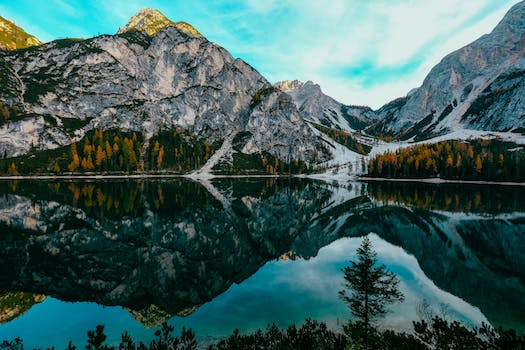- 1. Introduction
- 1.1. Definition of Adventure
- 1.2. Definition of Travel
- 2. Differences between Adventure and Travel
- 2.1. Purpose
- 2.2. Activities
- 2.3. Level of Risk
- 2.4. Planning
- 2.5. Duration
- 3. Benefits of Adventure and Travel
- 3.1. Physical Health
- 3.2. Mental Health
- 3.3. Cultural Understanding
- 3.4. Personal Growth
- 3.5. Memorable Experiences
1. Introduction
Adventure and travel are often used interchangeably, but they bring different experiences and thrills. While both involve exploring the unknown, the way they are approached and the level of excitement they offer can vary significantly. Adventure is all about stepping out of your comfort zone, taking risks, and seeking adrenaline-pumping activities. It pushes you to your limits and tests your physical and mental strength. On the other hand, travel focuses more on the journey, immersing yourself in different cultures, and discovering new places. It offers an opportunity to broaden your horizons, gain new perspectives, and create lasting memories. In this article, we will delve into the differences between adventure and travel, and explore the unique thrills they offer to those who seek the unknown.
1.1. Definition of Adventure
Adventure can be defined as an exciting or unusual experience that involves taking risks and exploring the unknown. It is often associated with activities such as hiking, mountain climbing, skydiving, or exploring remote and uncharted territories. Adventure is all about stepping outside of one’s comfort zone and embracing uncertainty, seeking thrills, and pushing personal boundaries. It is a way to break free from routine and embark on a journey filled with adrenaline, excitement, and the possibility of new discoveries. In essence, adventure is about embracing the thrill of the unknown and experiencing life in a bold and daring way.
1.2. Definition of Travel
Travel can be defined as the act of moving from one place to another, typically to explore and experience new locations, cultures, and environments. It involves venturing into the unknown, stepping out of one’s comfort zone, and immersing oneself in unfamiliar surroundings. Travel is often associated with leisure, adventure, and the pursuit of knowledge. It allows individuals to broaden their horizons, gain new perspectives, and create lasting memories. Whether it’s backpacking through foreign countries, embarking on road trips, or visiting tourist destinations, travel offers a unique opportunity for personal growth and discovery.
2. Differences between Adventure and Travel
Adventure and travel are often used interchangeably, but they actually have distinct differences. While both involve exploring the unknown, adventure is focused on the thrill and excitement of taking risks and engaging in adrenaline-pumping activities. On the other hand, travel encompasses a broader scope, including cultural immersion, relaxation, and discovering new destinations. Adventure tends to be more physically challenging, involving activities such as hiking, rock climbing, or skydiving, while travel can encompass various experiences like visiting historical sites, trying local cuisine, or simply enjoying the beauty of nature. Ultimately, adventure and travel offer unique and fulfilling experiences, each with its own appeal and benefits.
2.1. Purpose
Although the phrases “adventure” and “travel” are sometimes used synonymously, they have important distinctions. Knowing these distinctions can assist people in identifying the kind of experience they are looking for.
Usually, adventure is about taking chances and going into uncharted territory. It’s about pushing oneself to the edge and pursuing thrills and adrenaline rushes. Adventure seekers are drawn to exhilarating pursuits like skydiving, bungee jumping, and rock climbing. They try to push themselves beyond their comfort zones and live on the element of surprise and uncertainty.
However, the main goal of travel is to discover new locations, customs, and cultures. It entails taking in the breathtaking scenery, sampling the regional cuisine, and losing oneself in the beauty of the location. Many times, travelers are looking for rest, education, and a better grasp of the world. Those
2.2. Activities
Travel and adventure are two thrilling possibilities when it comes to experiencing the thrill of the unknown. Despite their apparent similarities, the two are very different from one another. More risky and exhilarating activities, like skydiving, bungee jumping, or rock climbing, are usually part of an adventure. People are pushed outside of their comfort zones by these activities, which makes them feel exciting and accomplished. However, travel offers a wider variety of activities, such as leisure, sightseeing, and cultural immersion. It entails traveling to new places, sampling regional cuisine, and discovering new cultures and customs. Travel and adventure both present special chances for personal development, yet they appeal to different tastes and passions. Regardless of your preference for a relaxed or high-adrenaline experience, both
2.3. Level of Risk
There are clear distinctions between adventure and travel in terms of the amount of risk involved. Adventure frequently entails partaking in exhilarating, heart-pounding activities that carry a certain amount of risk. Adventure seekers are drawn to events that test their limits and deliver a surge of adrenaline, whether it’s skydiving, bungee jumping, or rock climbing. To reduce the hazards associated with these tasks, meticulous planning, safety precautions, and occasionally even expert advice are needed.
However, traveling usually means discovering new places, engaging with diverse cultures, and immersing oneself in strange surroundings. Traveling carries certain inherent hazards, including the possibility of getting lost or running into unforeseen difficulties, but overall, it’s less dangerous than adventure sports. Visitors frequently
2.4. Planning
When it comes to planning for an adventurous trip or a leisurely travel experience, it is important to understand the differences between the two. Adventure and travel may seem similar, but they offer distinct experiences that cater to different types of individuals.
Adventure is all about seeking thrills, taking risks, and pushing oneself out of the comfort zone. It involves engaging in activities such as mountain climbing, bungee jumping, skydiving, or exploring remote and uncharted locations. Adventurers are adrenaline junkies who crave excitement and the rush of the unknown. They thrive on the challenges and unpredictability that come with embarking on daring expeditions.
On the other hand, travel focuses more on exploring new cultures, experiencing different lifestyles, and appreciating the beauty of various destinations. It is about immersing oneself in the local traditions, trying new cuisines, and discovering historical landmarks. Travelers seek to broaden their horizons, gain new perspectives, and create memorable experiences through interaction with different people and places.
While adventure may involve travel to some extent, not all travel experiences can be categorized as adventures. Adventure requires a certain level of physical and mental endurance, as well as a willingness to step outside one’s comfort zone. Travel, on the other hand, can be a more relaxed and leisurely pursuit, allowing individuals to unwind and rejuvenate.
In conclusion, whether you are an adrenaline junkie or someone who enjoys immersing in new cultures, both adventure and travel offer unique experiences. Understanding the differences between the two can help you plan your next journey accordingly, ensuring that you satisfy your thirst for excitement or your desire to explore the world.
2.5. Duration
When it comes to exploring the thrill of the unknown, both adventure and travel offer unique experiences. However, there are some key differences between the two.
Duration:
One significant difference between adventure and travel is the duration of the experience. Adventure typically refers to a short-term activity or journey that involves excitement, risk, and adrenaline. It can be a single event or a series of thrilling activities that last for a few days or weeks. On the other hand, travel often implies a longer duration, such as a vacation or a planned trip to explore new places. It involves a broader range of activities and experiences that can last for several weeks, months, or even years.
While adventure seeks immediate thrills, travel allows for a more immersive and extended exploration of different cultures, landscapes, and lifestyles. Whether you prefer the quick adrenaline rush of adventure or the slow-paced discovery of travel, both options provide an opportunity to step out of your comfort zone and embrace the unknown.
3. Benefits of Adventure and Travel
Adventure and travel offer numerous benefits that can enrich our lives in many ways. Here are some of the key advantages of embarking on adventurous journeys and exploring the unknown.
1. Personal Growth: Adventure and travel push us out of our comfort zones and challenge us to overcome obstacles. This leads to personal growth and development as we learn new skills, gain confidence, and expand our horizons.
2. Cultural Exchange: Through adventure and travel, we have the opportunity to immerse ourselves in different cultures and interact with people from diverse backgrounds. This fosters cultural understanding, tolerance, and appreciation for the world’s rich diversity.
3. Physical and Mental Health: Adventure activities often involve physical exertion, which is beneficial for our overall health and well-being. Additionally, travel helps reduce stress, rejuvenate the mind, and enhance mental resilience.
4. Broadened Perspective: Adventure and travel expose us to new experiences, perspectives, and ways of life. This broadens our worldview, challenges preconceived notions, and encourages open-mindedness.
5. Unforgettable Memories: The thrill of adventure and travel creates lasting memories that we can cherish for a lifetime. From breathtaking landscapes to exciting encounters, these experiences become a part of our personal stories.
6. Increased Creativity: Exploring new environments and encountering unfamiliar situations stimulates our creativity. Adventure and travel inspire fresh ideas, spark innovation, and encourage creative problem-solving.
7. Bonding and Relationships: Whether we embark on adventures alone or with companions, these experiences strengthen bonds and create lasting relationships. Shared adventures often lead to deep connections and memorable shared moments.
In conclusion, adventure and travel offer a multitude of benefits that go beyond simply exploring the unknown. From personal growth to cultural exchange and increased creativity, these experiences have the power to transform our lives in profound ways.
3.1. Physical Health
Adventure and travel offer numerous benefits for physical health. Engaging in adventurous activities such as hiking, rock climbing, or water sports requires physical exertion, which helps to improve cardiovascular fitness and strength. These activities often involve walking or climbing, which are great forms of exercise for improving muscular endurance and toning the body. Additionally, adventure and travel can provide opportunities for outdoor activities in natural environments, allowing individuals to soak up vitamin D from the sun, which is essential for maintaining healthy bones and immune function. Furthermore, being in nature and exploring new surroundings can reduce stress levels and promote relaxation, leading to improved overall well-being. Overall, adventure and travel contribute positively to physical health by promoting physical activity, exposure to natural elements, and stress reduction.
3.2. Mental Health
Adventure and travel have numerous benefits for mental health. Engaging in adventurous activities and exploring new places can greatly contribute to overall well-being. Here are some key benefits of adventure and travel on mental health:
1. Stress Reduction: Adventure and travel provide an escape from the daily grind and can help reduce stress levels. Engaging in thrilling activities and experiencing new environments can promote relaxation and rejuvenation.
2. Boost in Confidence: Stepping out of one’s comfort zone and taking on new adventures can boost self-confidence. Overcoming challenges and trying new things during travel can enhance self-esteem and provide a sense of accomplishment.
3. Increased Happiness: Adventure and travel often lead to joyful experiences and create lasting memories. Exploring new places, meeting new people, and engaging in exciting activities can bring a sense of happiness and fulfillment.
4. Improved Mental Resilience: Facing the unknown during adventure and travel can improve mental resilience. Dealing with unexpected situations and adapting to new environments can enhance problem-solving skills and build mental strength.
5. Expanded Perspective: Adventure and travel expose individuals to different cultures, landscapes, and ways of life. This exposure can broaden perspectives, promote empathy, and create a deeper understanding of the world.
In conclusion, adventure and travel offer numerous benefits for mental health, including stress reduction, increased confidence, happiness, improved resilience, and an expanded perspective. Engaging in these activities can have a positive impact on overall well-being and contribute to a fulfilling life.
3.3. Cultural Understanding
Cultural understanding is a significant aspect of both adventure and travel. When embarking on an adventure or exploring new destinations, individuals have the opportunity to immerse themselves in different cultures, traditions, and ways of life. This exposure to diverse cultures fosters a deeper appreciation and understanding of the world we live in, breaking down stereotypes and promoting empathy.
Through adventure and travel, people can engage with local communities, interact with people from different backgrounds, and learn about their customs and beliefs. This cultural exchange not only broadens one’s perspective but also allows for personal growth and development.
By embracing cultural understanding, adventurers and travelers can gain a greater sense of empathy, tolerance, and respect for others. They can learn to appreciate the similarities and differences between cultures, fostering global connections and promoting peace and harmony.
In summary, cultural understanding is a valuable benefit of both adventure and travel. It allows individuals to expand their horizons, challenge their preconceived notions, and develop a deeper understanding of the world and its diverse inhabitants.
3.4. Personal Growth
Engaging in adventure and travel can greatly contribute to personal growth. The benefits of embarking on new experiences and exploring the unknown are numerous. One of the key advantages is that adventure and travel provide opportunities for self-discovery. When we step out of our comfort zones and immerse ourselves in unfamiliar environments, we are exposed to new perspectives and ways of thinking. This can lead to personal growth by expanding our horizons and challenging our preconceived notions.
Adventure and travel also foster personal development by encouraging independence and self-reliance. When we embark on an adventure or travel to a new place, we are often faced with unexpected situations and have to rely on our own problem-solving skills. This can help boost our confidence and resilience, as we learn to navigate through unfamiliar territory and overcome obstacles.
Furthermore, adventure and travel offer opportunities for personal reflection and introspection. Stepping away from our daily routines and immersing ourselves in new experiences allows us to gain a fresh perspective on our lives and priorities. It can help us reassess our goals, values, and aspirations, leading to personal growth and a deeper understanding of ourselves.
In addition, adventure and travel provide avenues for building interpersonal skills and cultural competence. When we engage with people from different cultures and backgrounds, we are exposed to diverse ways of communication and interaction. This enhances our ability to connect with others and fosters empathy and understanding.
Overall, the benefits of adventure and travel for personal growth are significant. By venturing into the unknown and embracing new experiences, we can expand our horizons, foster personal development, gain self-awareness, and enhance our interpersonal skills. So, whether it’s embarking on an adrenaline-pumping adventure or exploring a new destination, the thrill of the unknown can be a catalyst for personal growth.
3.5. Memorable Experiences
Memorable experiences are an integral part of both adventure and travel. They are the moments that stay with us long after the trip is over, becoming cherished memories that we can look back on with fondness. Whether it’s conquering a challenging hiking trail, experiencing a thrilling adrenaline rush, or immersing ourselves in a different culture, these experiences have the power to transform us. They push us out of our comfort zones, helping us discover new strengths and capabilities we never knew we had. They also provide opportunities for personal growth, allowing us to gain a deeper understanding of ourselves and the world around us. From witnessing breathtaking natural wonders to engaging in exhilarating activities, adventure and travel offer a multitude of benefits that create lasting memories.
Conclusion
In conclusion, whether you prefer adventure or travel, both offer the thrilling experience of exploring the unknown. While adventure focuses on pushing boundaries and seeking adrenaline-inducing activities, travel allows for a deeper immersion into diverse cultures and landscapes. Ultimately, the choice between adventure and travel depends on individual preferences and the desire to discover new and exciting experiences. So, embark on your next journey, be it an adventurous expedition or a leisurely exploration, and embrace the thrill of the unknown.





